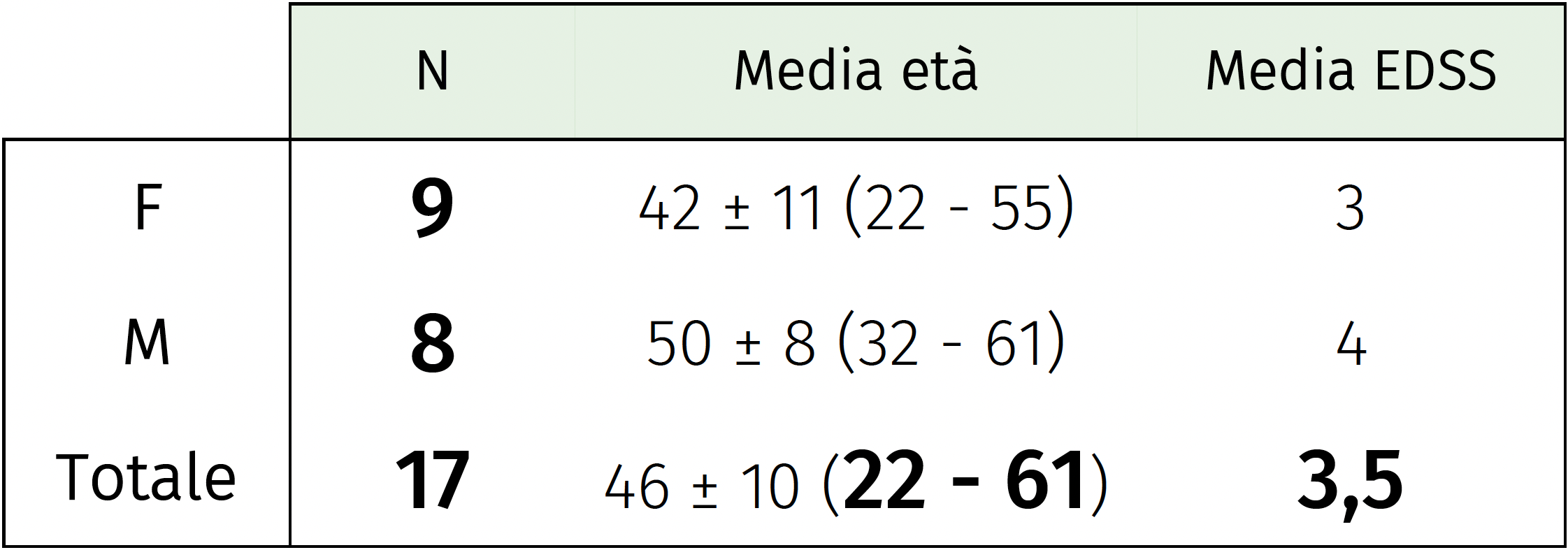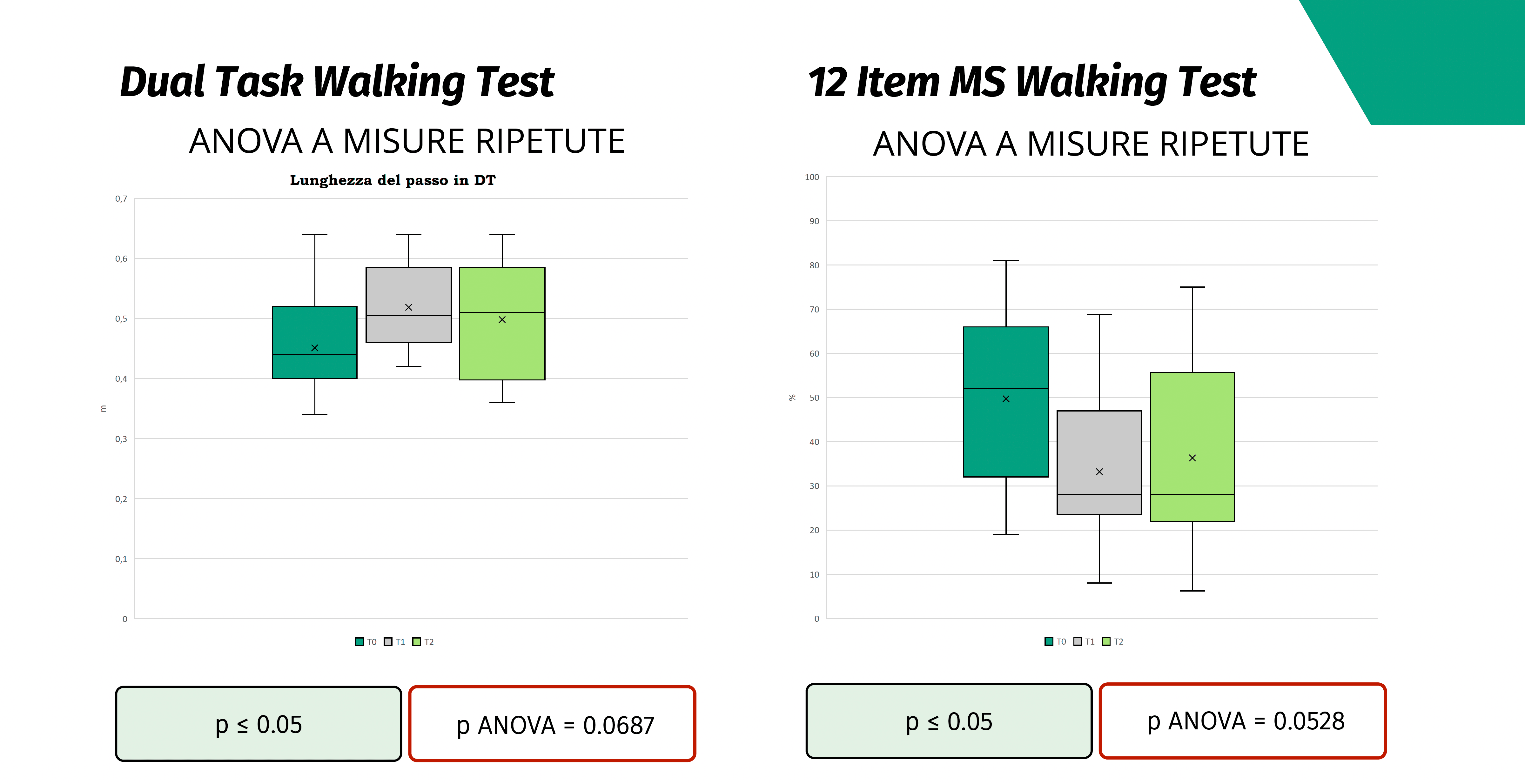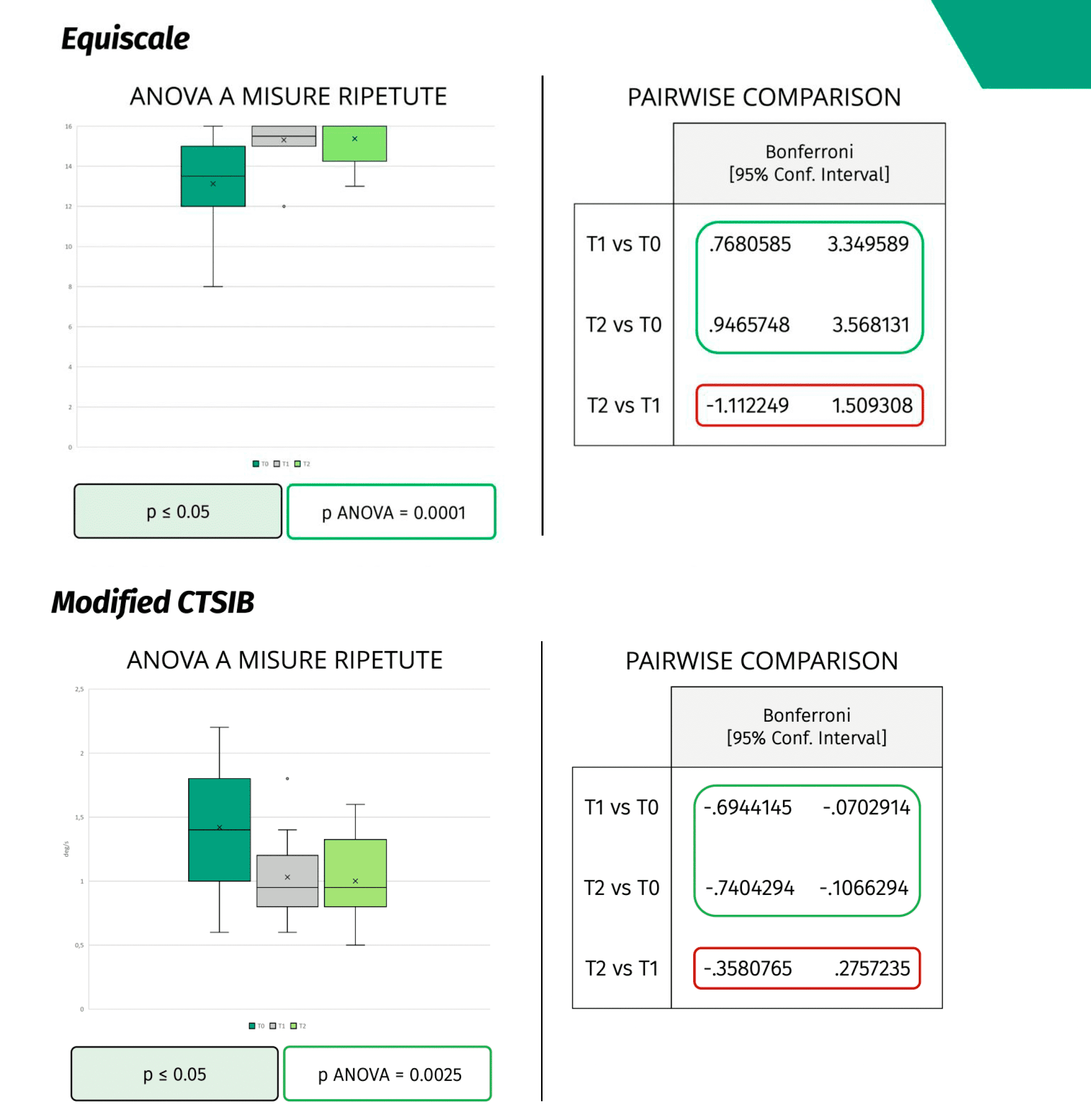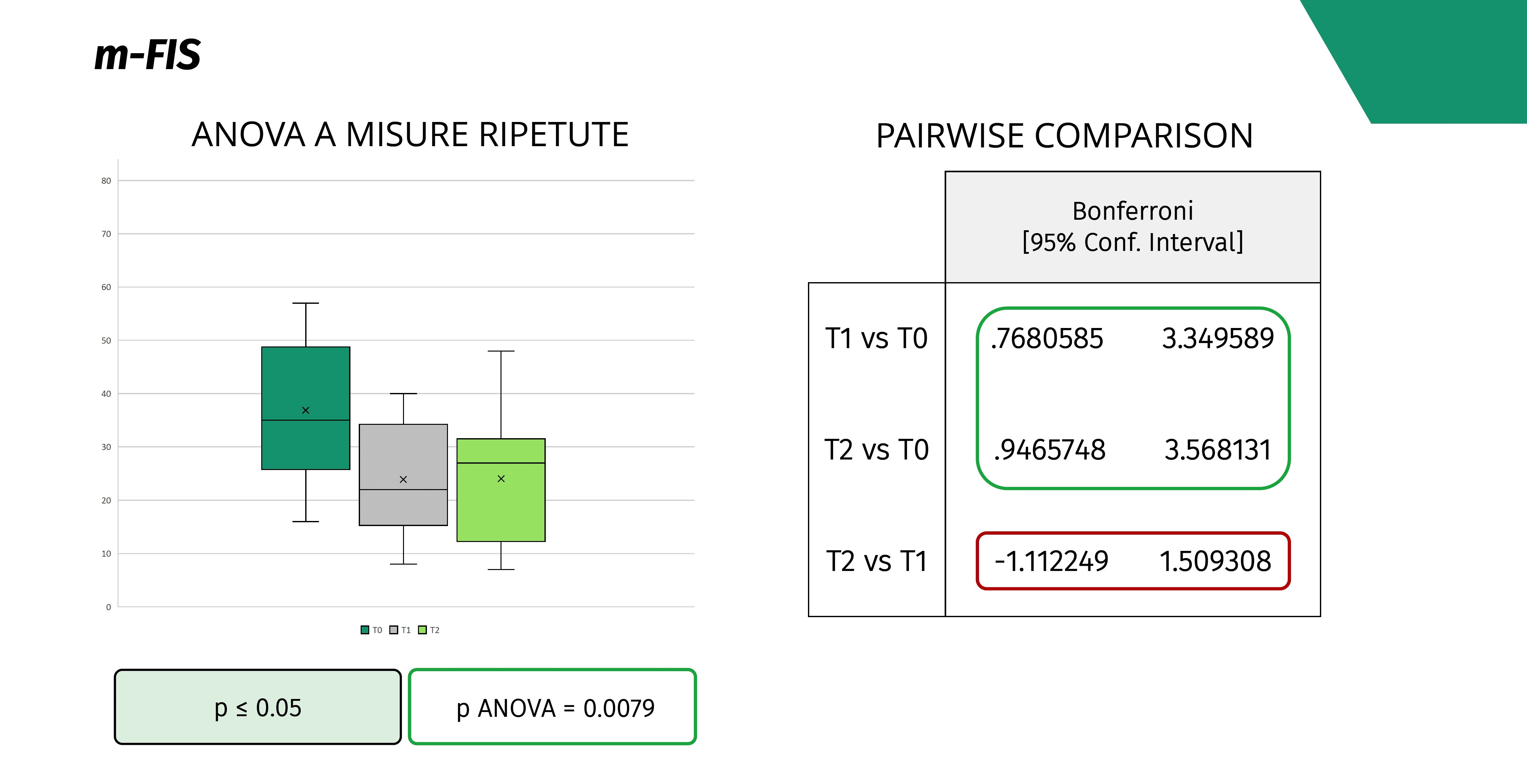TRATTAMENTO RIABILITATIVO DUAL TASK COGNITIVO-MOTORIO IN PAZIENTI CON SCLEROSI MULTIPLA
COGNITIVE-MOTOR DUAL TASK REHABILITY TREATMENT IN PATIENTS WITH MULTIPLE SCLEROSIS
Introduction
Cognitive-Motor Dual Task (CM-DT), which involves the simultaneous execution of a motor task and a cognitive task, can lead to cognitive-motor interference (CMI) that result in performance deterioration in one of the two tasks. Previous studies have shown a correlation between deficits in executive and cognitive functions and gait disturbances.(1) This phenomenon is particularly evident in patients with Multiple Sclerosis (PMS), where a worsening of qualitative and quantitative gait parameters has been observed when associated with cognitive demands.(2) The aim of this study is to analyse the improvements in gait – in terms of objective parameters and subjective perception – balance, fatigue, and cognitive DT after a rehabilitation program focused on CM-DT.
Methods
Following specific inclusion criteria for study participation (diagnosis of Multiple Sclerosis; EDSS ≥ 2 and ≤ 5.5; Mini Mental State Examination > 26; independent walking ability; absence of relapses and absence of steroid pharmacological therapy in the last 30 days), 17 PMS were enrolled in a 4-week treatment program. We proposed a DT treatment approach involving the execution of cognitive exercises (focused on attention, information processing speed and memory) on a Tablet device during walking.3 Evaluations were conducted pre-treatment (T0), post-treatment (T1), and one month after treatment completion (T2). Minimal Detectable Change (MDC) was calculated with MDC95=1,96 x SEM x √2. MDC was calculated to determine which improvements were significant for each patient at T0, T1 and T2. ANOVA and pairwise comparisons were used to evaluate statistically significant improvements over time.
Results
The characteristics of the participants are summarized in the figure 1. Improvements in gait (Fig.2), balance (Fig.3), and fatigue (Fig.4) were observed immediately after the DT treatment. Specifically, there was a statistically significant improvement in balance and fatigue assessment tools immediately after the DT treatment. Equiscale: MDC (T1-T0) 9 participants had significant improvement (>MDC); p ANOVA = 0.0001; Bonferroni 95% CI (T1-T0) 0.77, 3.35, Bonferroni 95% CI (T2-T0) 0.95, 3.57. mCTSIB: MDC (T1-T0) 11 participants had significant improvement (>MDC); p ANOVA = 0.0025; Bonferroni 95% CI (T1-T0) -0.69, -0,07, Bonferroni 95% CI (T2-T0) -0.74, -0.11. mFIS: MDC (T1-T0) 12 participants had significant improvement (>MDC); p ANOVA = 0.0079, Bonferroni 95% CI (T1-T0) 0.77, 3.35, Bonferroni 95% CI (T2-T0) 0.95, 3.57.
Discussion and Conclusion
The integration of cognitive tasks during walking allowed the development of an exercise program tailored to address the various challenges experienced by PMS. The participants perceived the proposed exercises as interesting, beneficial, and enjoyable. The incorporation of innovative methods, such as mobile applications for DT treatment, proved highly engaging and representative of real-life scenarios. Moreover, improvements in gait, balance and fatigue tended to be maintained at the follow-up, suggesting durability of the benefits achieved through DT-focused treatment.
The results demonstrate that DT training associated with gait is an effective and stimulating rehabilitation approach for improving gait parameters, balance, and reducing fatigue in PMS. The findings suggest that including CM-DT training in rehabilitation programs can provide functional benefits for individuals with MS.
REFERENCES
- McIsaac TL, Fritz NE, Quinn L, Muratori LM. Cognitive-Motor Interference in Neurodegenerative Disease: A Narrative Review and Implications for Clinical Management. Front Psychol. 2018;9:2061.
- Veldkamp R, Baert I, Kalron A, Tacchino A, D’hooge M, Vanzeir E. Structured Cognitive-Motor Dual Task Training Compared to Single Mobility Training in Persons with Multiple Sclerosis, a Multicenter RCT. J Clin Med. 2019;8(12):2177.
- Tacchino A, Veldkamp R, Coninx K, Brulmans J, Palmaers S, Hämäläinen P, et. Design, Development, and Testing of an App for Dual-Task Assessment and Training Regarding Cognitive-Motor Interference (CMI-APP) in People With Multiple Sclerosis: Multicenter Pilot Study. JMIR MHealth UHealth. 2020;8(4):e15344.




